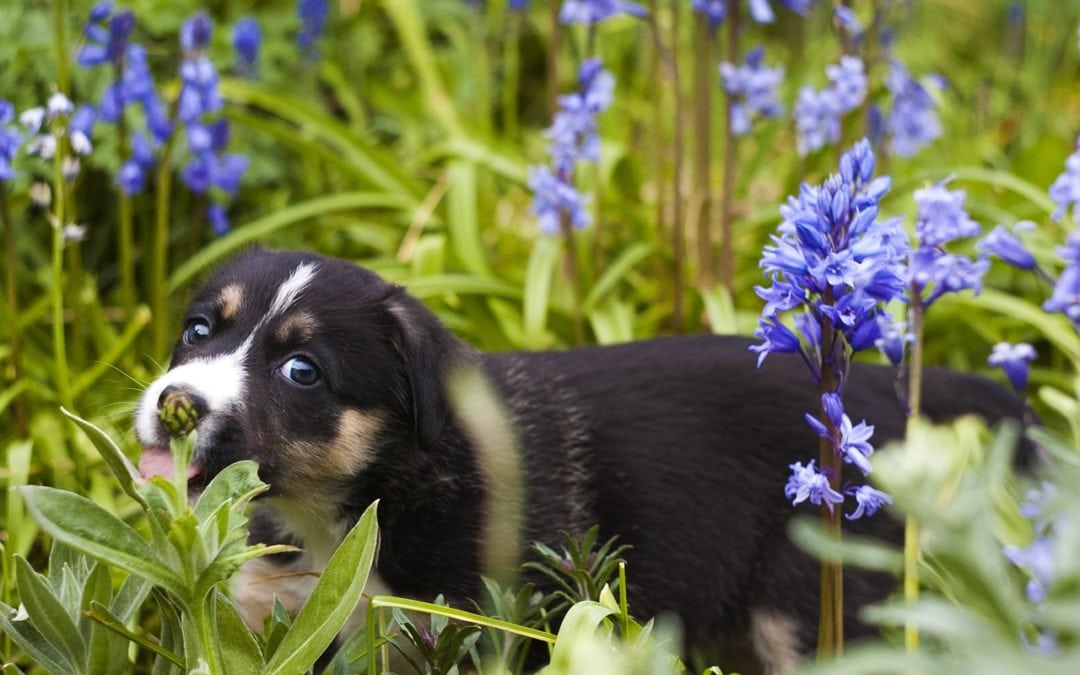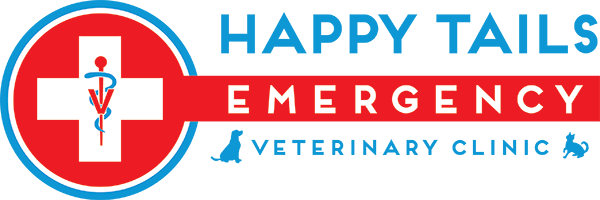Five Things in Your Garden that are Toxic to Pets

Pet poisoning can be scary, and it can happen when you least expect it. Our emergency veterinarian in Greensboro, Dr. Kelley Gebhardt, along with her colleagues, wants every pet owner to be aware of common pet poisoning hazards, and what to do if you suspect your cat or dog has eaten something that may be harmful to their health.
As the spring thaw begins, many of us will be heading outside to get our yards into tip-top shape. But, if your pets spend time in the yard, too, beware some of the common outdoor items that could be toxic.
- Pesticides and insecticides — Watch for pesticides or insecticides that contain organophosphates, which are often found in systemic rose care products. Ingestion of even a small amount of a product containing this chemical can be life-threatening for your pet.
- Cocoa mulch — Made of discarded cocoa bean shells, cocoa mulch has a tempting chocolate-like smell that can attract dogs. Because the discarded shells are the byproducts of chocolate production, they can contain theobromine and caffeine, the two ingredients in chocolate that are harmful to dogs. If your dog consumes a mulch variety with higher levels of the toxins, he could experience diarrhea, vomiting, hyperactivity, an abnormal heart rhythm, seizures, and even death.
- Compost — Composting is good for the environment, but not so good for your pet. As the organic matter in compost decomposes, molds will grow, some of which produce tremorgenic mycotoxins. If your pet gets into moldy compost, he might experience panting, agitation, drooling, vomiting, tremors, and seizures.
- Meal-based fertilizers — Most fertilizers won’t harm your pets, but those containing bone meal, blood meal, or feather meal can be tempting to dogs and can cause problems when ingested. If too much is consumed, a concentration in the stomach can form, potentially obstructing the gastrointestinal tract and causing pancreatitis.
- Slug and snail baits — Are slugs and snails a problem in your yard? If you have a pet, avoid the use of slug and snail baits that contain metaldehyde, a chemical that is highly poisonous to dogs and cats. If your pet ingests metaldehyde, you’ll notice restlessness, salivation, seizures, tremors, vomiting, and a high fever that can result in death.
And, of course, some of the most common outdoor toxins for our pets are flowers and plants. Not sure about some of the plants in your yard? Check out this list of toxic and non-toxic plants from the ASPCA.
By seeking immediate treatment, you help your pet recover and lower the risk of severe measures. To learn more about treating poison, call us at (336) 288-2688 today.
Recent Posts
About Us
At Happy Tails Veterinary Emergency Clinic in Greensboro, NC, our kind and knowledgeable team is available to provide gold standard emergency vet care for you and your pet. We’re available in the late night and early morning hours during the week, and 24/7 on weekends for your convenience.
